
 April 12,2020
April 12,2020
Benefits_eligibility_ and documents required for home construction loan
A construction loan, often known as a self-build loan, is a loan taken out to finance the development of any real estate project or residence.
Read More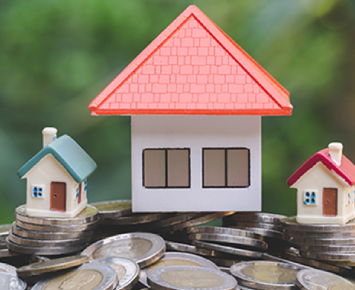
 April 12,2020
April 12,2020
How does home loan repayment happen?
Repayment is the act of repaying money borrowed from a lender. Typically, funds are returned by monthly installments that include both principal and interest. The term "principal" refers to the initial amount of money borrowed in a loan. Interest is the fee for the privilege of borrowing money; a borrower must pay interest in order to use the cash released to them through the loan. Loans may normally be paid off in full at any time, however certain contracts may impose an early repayment fee.
Read More
 April 12,2020
April 12,2020
What is a top up loan?
Top-up is a provision that allows you to add or top up a specified amount to your existing home loan amount. Those who currently have a house loan and make on-time payments can apply for a top-up loan. Various private and nationalised banks provide top-up loans to their loyal customers.
Read More
 April 12,2020
April 12,2020
NRI Home Loan
An NRI house loan has the same structure as a regular home loan, with debts payable in Equated Monthly Instalments (EMI). The difference is in the interest rate and loan length, where the interest rate for NRIs is somewhat higher and the loan period is shorter than for Indian citizens.
Read More
 April 12,2020
April 12,2020
What is an EMI (Equated Monthly Installment)?
The amount paid by a borrower to a lender on a certain date each calendar month is referred to as the EMI.
Read More
 April 12,2020
April 12,2020
What Is the Difference Between a land Loan and a Home Loan?
Many people may not notice the distinction between buying a new house and buying a plot of land, and both purchases are commonly referred to as buying property; nonetheless, there are distinctions that must be addressed when obtaining financing.
Read More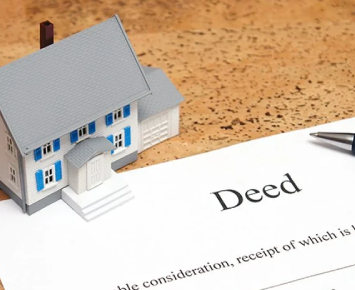
 April 12,2020
April 12,2020
What is the meaning of a lease deed?
A leasing agreement between the landlord (lessor) and the tenant is known as a lease dead (lessee). It specifies that the lessor will be paid over a set length of time in exchange for the property leased to the lessor. The lease agreement also contains the terms and conditions that both parties must adhere to during the lease period.
Read More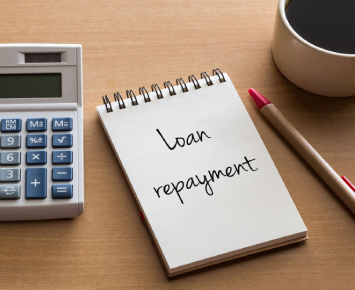
 April 12,2020
April 12,2020
What are modes of repayment installments for loans?
Repayment is the act of repaying money borrowed from a lender. Typically, funds are returned by monthly installments that include both principle and interest. The term "principal" refers to the initial amount of money borrowed in a loan. Interest is the fee for the privilege of borrowing money; a borrower must pay interest in order to use the cash released to them through the loan. Loans may normally be paid off in full at any time, however certain contracts may impose an early repayment fee.
Read More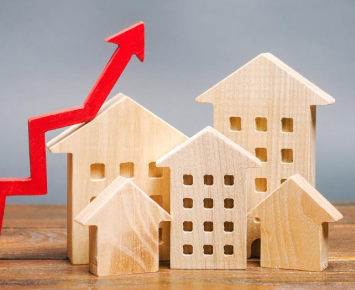
 April 12,2020
April 12,2020
What Is Loan Limit?
Repayment is the act of repaying money borrowed from a lender. Typically, funds are returned by monthly installments that include both principle and interest. The term "principal" refers to the initial amount of money borrowed in a loan. Interest is the fee for the privilege of borrowing money; a borrower must pay interest in order to use the cash released to them through the loan. Loans may normally be paid off in full at any time, however certain contracts may impose an early repayment fee.
Read More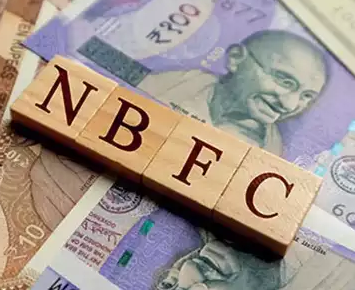
 April 12,2020
April 12,2020
What Is NBFC?
An NBFC, or Non-Banking Financial Company, is one that operates similarly to a bank by offering loans, financial leasing, or hire purchase but does not take public deposits by enabling consumers to create savings/current accounts with it. NBFCs, on the other hand, can accept deposits under any plan or arrangement in one lump payment, as contributions, or in any other method. An NBFC cannot also issue checks or draughts. So, what distinguishes them from banks? NBFCs provide credit and loans at the micro-level, mostly to small and medium-sized businesses. As a result, these types of entrepreneurs involved in small and medium-sized businesses overcome their lack of liquidity and capital.
Read More
 April 12,2020
April 12,2020
What Is Loan Foreclosure?
Mortgaging is the process of using your ownership of land or other immovable property to acquire loans from a bank or other entity. House loans are also classified as mortgages since the property serves as a security for the bank under the terms of the home loan contract.
Read More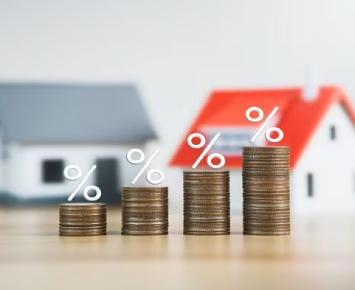
 April 12,2020
April 12,2020
Which home loan is best fixed or floating?
The interest rate on a fixed rate home loan is determined before you take out the loan. If a person selects this option, he will have fixed EMIs (Equated Monthly Instalments) for the duration of the loan. The interest rate will not fluctuate regardless of market interest rates (Repo Rate). As a result, we can determine the amount of money we will have to pay as EMI in advance and manage his budget appropriately.
Read More
 April 12,2020
April 12,2020
How does bridge loan work?
A bridging loan is a form of short-term loan that is meant to pay the purchase price of a second property while giving you time to sell your current house, even if you already have a mortgage. It effectively functions as a financial "bridge," allowing homeowners to bridge the gap between purchasing and selling. However, several factors of this form of loan must be evaluated before signing on the signed line, such as interest rates and terms.
Read More
 April 12,2020
April 12,2020
What is base rate and MCLR?
In recent years, numerous improvements have occurred in India's banking system. As a consequence, banks now have the right to establish their own interest rates as long as they accept the RBI's recommendations.
Read More
 April 12,2020
April 12,2020
what is the difference between a home loan and mortgage loan?
Both a home loan and a mortgage loan are secured loans that are often required to buy or build a home.
Read More
 April 12,2020
April 12,2020
What Exactly Is A Conveyance Deed?
In real estate transactions, the term "conveyance deed" is almost always used. Because this is not something most people are familiar with unless they have dealt with property issues, it is critical to gain clarification on this phrase, which we will strive to do in this essay.
Read More
 April 12,2020
April 12,2020
Rural home loan in India
Rural house loans are intended to give rural and semi-urban inhabitants the chance to realise their ambition of owning a home. The loan is available at a low-interest rate ranging from 8.05 percent per annum to 13.75 percent per annum, with a payback term of up to 30 years.
Read More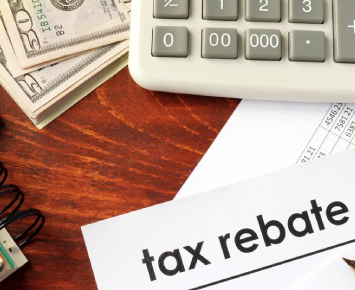
 April 12,2020
April 12,2020
Introduction To Income Tax Benefit
The word "tax benefit" typically refers to any tax legislation that allows you to decrease your tax burden if you meet specific qualifying rules. A tax advantage might take the form of a deduction, exclusion, or credit. The amount of tax you can save also relies on the sort of tax advantage you claim, as each one provides a different type of savings.
Read More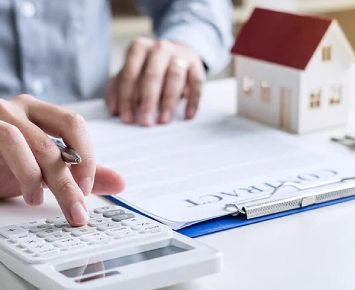
 April 12,2020
April 12,2020
What Is The Home Loan Processing Fee?
For the majority of us, home loans are the most common financial tools for acquiring a home. The COVID-19 epidemic has harmed many purchasers' purchasing power, prompting them to consider obtaining a house loan to fulfil their desire of owning a property in the aftermath of the pandemic. Apart from the EMIs, house loans have a number of other fees. The processing fee that applicants must pay is one such expense that is considered. This is often referred to as the house loan fee.
Read More
 April 12,2020
April 12,2020
What-Are-The-Types-Of-Home-Construction-Loans
Construction loans often feature variable interest rates that fluctuate in tandem with the prime rate. Construction loan interest rates are often higher than mortgage loan interest rates. With a standard mortgage, your house serves as security; if you fail to make payments, the lender has the right to confiscate your home. Because the lender does not have that choice with a home building loan, they tend to perceive these loans as higher risk.
Read More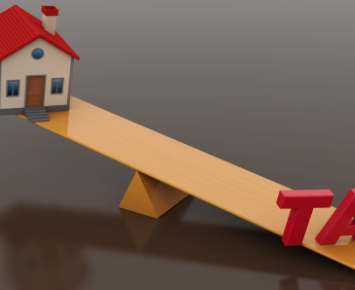
 April 12,2020
April 12,2020
How Can I Decrease Home Loan Tenure?
A home loan is most likely the most significant burden that a person incurs in their lifetime. It is also the loan with the longest repayment period. As a result, most house loan borrowers are always looking for methods to minimise their equivalent monthly instalment (EMI) outlay.
Read More
 April 12,2020
April 12,2020
how home loan benefit in income tax
The Income Tax Act of 1961 has a number of provisions for a tax rebate on house loans. The three key areas where such a borrower might seek exemptions are as follows:
Read More
 April 12,2020
April 12,2020
What is 28/36 rule?
The 28/36 rule is a common-sense formula used to determine how much debt a person or household should take on. According to this guideline, a household should spend no more than 28 percent of its gross monthly income on total housing expenditures and no more than 36 percent on total debt payment, which includes housing and other debt such as auto loans and credit cards. This guideline is frequently used by lenders to determine whether or not to grant credit to borrowers.
Read More
 April 12,2020
April 12,2020
Pre-closure Vs Part-prepayment
Loans are obtained to suit a variety of demands in life, such as house loans, auto loans, personal loans, school loans, company loans, and so on. The repayment of these loans becomes a huge duty. One can choose the more usual option of repayment throughout the whole loan term,' or a few choose 'prepayment or foreclosure of their debts.' To take advantage of the incentives given by banks to borrowers, borrowers must understand the conditions of loan repayment, regardless of how they choose to settle their loans.
Read More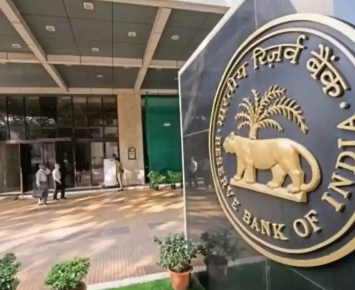
 April 12,2020
April 12,2020
What Benefits For First Time Home Buyer
If you are purchasing a property for the first time, you are entitled to income tax incentives under three parts of the Income Tax Act: Section 80C, Section 24, and Section 80EEA. Here's all you need to know:
Read More
 April 12,2020
April 12,2020
What Are Msf And Laf
A liquidity adjustment facility (LAF) is a monetary policy instrument primarily employed by the Reserve Bank of India (RBI) that allows banks to borrow money through repos or make loans to the RBI through reverse repo agreements. This structure aids in decreasing liquidity needs and guaranteeing the basic stability of the financial markets. Let us look at the meaning, genesis, and goals of LAF in this post.
Read More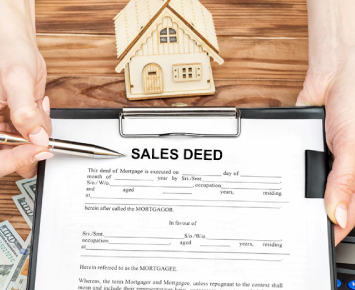
 April 12,2020
April 12,2020
Home Loan Sanction Letter
As a borrower, there are several important things to consider during the home loan application and approval process. These include the lender's eligibility and documentation requirements, the application procedure, the fees payable, and much more. The lender will present you with a critical document known as the house loan sanction letter as you go through the stages. This documentation is vital to a borrower since it contains all of the information relevant to the home loan agreement on offer.
Read More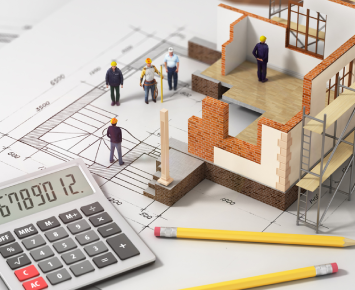
 April 12,2020
April 12,2020
How Is a Sale Deed Executed?
The signing of the selling document is theoretically the final step in the property-purchase process. When a buyer and seller reach an agreement, they first execute an agreement to sell, which is a contract that establishes the terms and circumstances under which the future transaction will take place. The drafting of an agreement to sell indicates that the transaction's terms have been agreed upon, whereas the production of a sale document indicates that the purchase has been finalized. According to the terms of the agreement to sell, the two parties must complete the deal within a certain time after signing the agreement to sell.
Read More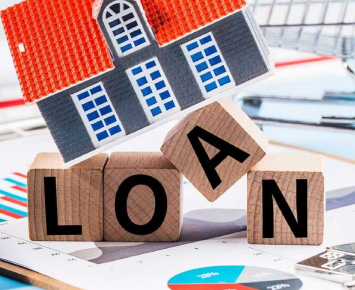
 April 12,2020
April 12,2020
Home construction loan
Finding the ideal home may be a rewarding yet hard experience. With so many styles to pick from — colonial, ranch, mid-century modern, townhouse, and Tudor, to name a few – some individuals don't know where to begin. And once you've decided on a style, there are a plethora of additional must-have aspects to consider, such as the size of the property and its location. With all of these factors on your mind and a limited number of houses on the market, it may appear hard to discover your dream home in your ideal location within your budget.
Read More
 April 12,2020
April 12,2020
what are the different purposes of a home loan?
For house purchasers, home loans are mostly used to purchase a property or to facilitate the development of one. Different forms of house loans are obtained for various objectives, including as
Read More
 April 12,2020
April 12,2020
Have you got your property documents verified?
The buyer of property must ensure that the property she or he wants to purchase will not cause legal problems in the future and that the seller is the lawful owner of that property. To do so, she or he must undertake what is known as 'due diligence’ on the property.
Read More
 April 12,2020
April 12,2020
What Is Pmay
The Pradhan Mantri Awas Yojana, or PMAY, is the flagship initiative of the Indian government, and it was established in June 2015 with the goal of fueling the notion of "Housing for All." The project aims to improve the lives of homeless persons in India. The scheme's major plan is to build two crore houses for people from low-income families, middle-income groups, and economically disadvantaged groups. So far, the government has approved 1.12 million dwellings.
Read More
 April 12,2020
April 12,2020
Home loan interest rate
The interest rate on a home loan is the percentage of the principal amount charged by the lender to the borrower for the use of the principal amount. The cost of your house loan is determined by the interest rate set by banks and non-financial organizations. So, when you pay your home loan EMI (equated monthly installment), the interest rate levied affects how much you must pay your lender each month against your loan. Interest rates are often tied to the repo rate and might differ amongst lenders.
Read More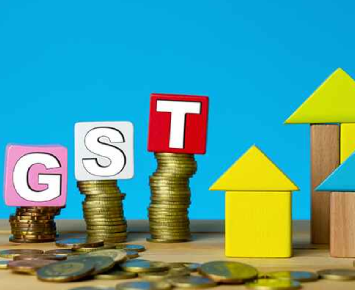
 April 12,2020
April 12,2020
Impact Of Gst On Home Loan
Purchasing a home is one of the most significant events in one's life. And in order to reach that milestone, many of us take out a house loan, which not only allows us to buy the home of our dreams but also allows us to take advantage of several tax breaks. With house loan interest rates being lowered and the simplicity of obtaining home loans these days, an increasing number of people are looking for home loans to help them realise their dreams. As a result, it's critical to understand how the recently implemented Goods and Services Tax (GST) will affect the real estate market, house loans, and EMIs.
Read More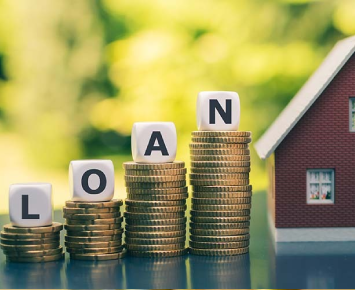
 April 12,2020
April 12,2020
what is a home loan?
A house loan, also known as a home loan, is a quantity of money obtained from a financial institution or bank to acquire a property. Home loans have an adjustable or fixed interest rate as well as payment periods.
Read More
 April 12,2020
April 12,2020
Pre Payment Of The Loan
Most of us do not want to be in debt. A loan (of any kind) is a debt that one would wish to repay as soon as possible (ideally prepay, i.e. pay before it's due). A house loan, on the other hand, should not be seen in the same manner as a personal loan, vehicle loan, or other type of loan. A house loan has a lot of advantages that may make prepayment unfavorable.
Read More
 April 12,2020
April 12,2020
What Is Home Loan Eligibility
The conditions that a borrower must fulfil in order to qualify for a house loan are defined as a person's eligibility for a bank's home loan product. These conditions often refer to a variety of characteristics such as the applicant's age, income, credit profile, and so on. To be authorised for a home loan, applicants must fulfil all of the bank's eligibility standards. The qualifying conditions for house loans differ from lender to lender.
Read More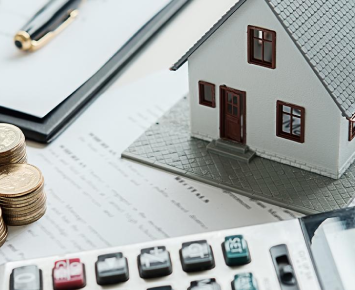
 April 12,2020
April 12,2020
How Do Home Loans Work?
An HDB loan, often known as a house loan, is money obtained from HDB or a bank to help you purchase a home. In the case of HDB flats, you may be able to get housing loans at a low interest rate, according to HDB regulations.
Read More
 April 12,2020
April 12,2020
Home Loan Disbursement Process
The house loan disbursement procedure involves numerous layers that need extensive document verification as well as precise technical and legal appraisal of the property. After that, which bank will make a decision on your loan's disbursement status?
Read More
 April 12,2020
April 12,2020
Benefits, eligibility, and documents required for a home construction loan
A construction loan, often known as a self-build loan, is a loan taken out to finance the development of any real estate project or residence. This house building loan is typically for a limited period of time. When the long-term financing is accepted, the homeowner or project builder should proceed to the house construction loan or plot and construction loan to cover the cost of the building. Because this sort of loan is a high risk, the interest rates on home building loans are substantially higher than on other types of loans. Contractors or purchasers who want a custom-made house are the most likely candidates for a construction loan. A borrower may choose to refinance a construction loan by turning it into a home equity loan.
Read More
 April 12,2020
April 12,2020
DDA Housing Scheme
The DDA has begun planning for the Housing Scheme 2020, which is set to commence in May. The development will most likely include 5,000 flats, 1,000 of which will be premium units. It will also contain high-end Higher Income Group (HIG) apartments. According to the DDA official, a total of 1,114 flats will be built, including 14 penthouses, 168 super HIG flats, and 932 HIG flats.
Read More
 April 12,2020
April 12,2020
Different Types Of Loan
In India, there are several sorts of loans accessible. Despite having a range of assets that they might mortgage in order to obtain loans at a cheaper interest rate, most consumers choose personal loans over other sorts. One of the causes behind this situation is a lack of awareness about the many sorts of loans accessible in India.
Read More© 2023 - All Rights with www.loanxpart.com




